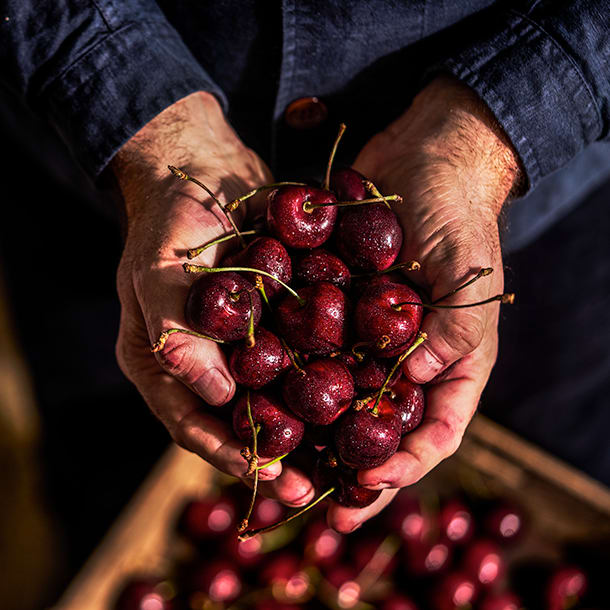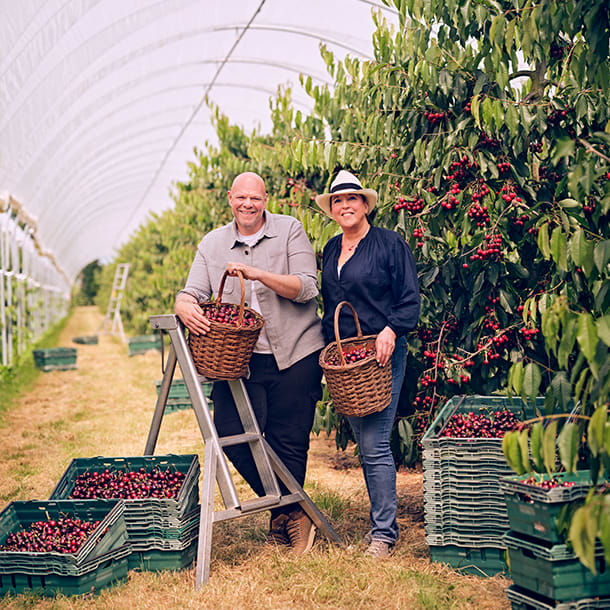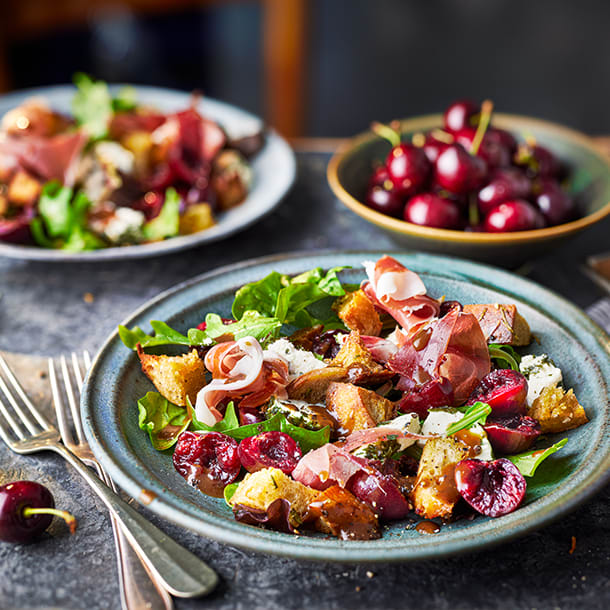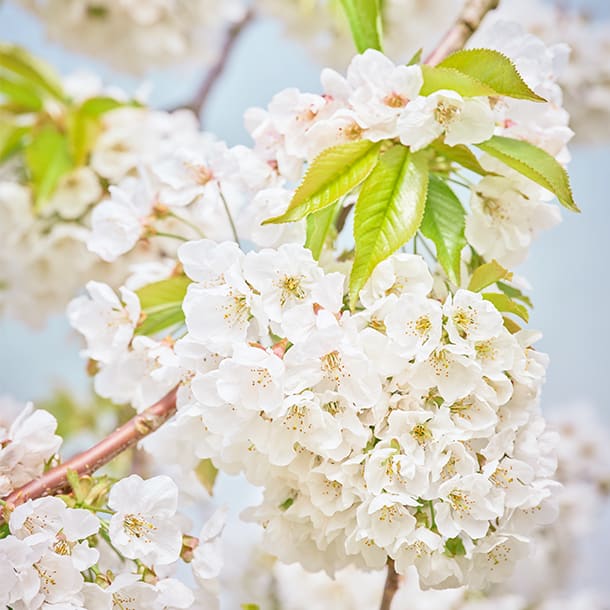
Cherry good
All hail King Cherry season! Plump and luscious, our King Cherries are some of the juiciest and sweetest cherries around – and also the biggest on the high street. Our King Cherries Measure a minimum of 32mm, which is over 20% bigger than our standard cherries – we have even seen some King Cherries as large as 38mm this year!
Keep an eye out for these rich and juicy seasonal stars in your local Foodhall now.
Meet our King Cherry Farmer
Farmer Sarah Neaves knows a thing or two about growing fruit – her family business, Little Sharsted Farm in Kent, happens to be one of the largest fruit growers in the South East. Despite the farm’s impressive output, traditional values still abound, with each and every King Cherry being picked by hand and placed in a wicker basket.
These delicious cherries thrive in the Garden of England, where the region’s fertile soil promotes ideal growing conditions. The cherries also benefit from a blossoming biodiversity; bees and insects, attracted to a series of trees planted by Sarah’s grandfather in the 1970s to protect the growing fruit, encourage pollination and cherry growth in the spring.
King Cherry recipe ideas
Make these fruity favourites sing with our tasty seasonal recipes, like our King Cherry and Parma ham salad with toasted sourdough croutons.
This easy to assemble summer salad is the perfect vehicle for juicy King Cherries, salty Parma ham and crisp sourdough croutons.
Find more cherry recipes online
Honey to the bee
Ever wondered how our cherries come to be so sweet and fragrant? For M&S farmer Jake Simpson, of Chicory Crops in Hereford, bees are an essential part of the process.
In addition to supplying us with plump and delicious cherries, Jake and his team oversee 40 apiaries on their Hereford cherry farm, and create distinctive small batch honeys exclusively for M&S. Jake’s honey is fuelled by biodiversity, with the honey being pollinated by the cherry farm’s bees.
‘We’re passionate about continuing to support and grow British beekeeping,’ says Jake. ‘We understand the importance of producing honey responsibly, and avoiding any negative impact on wild pollinators. Together with Fera’s National Bee Unit, and in consultation with leading NGOs and experts, we are working on a Responsible Honeybee Farming Standard, which we believe will be the first of its kind.’







